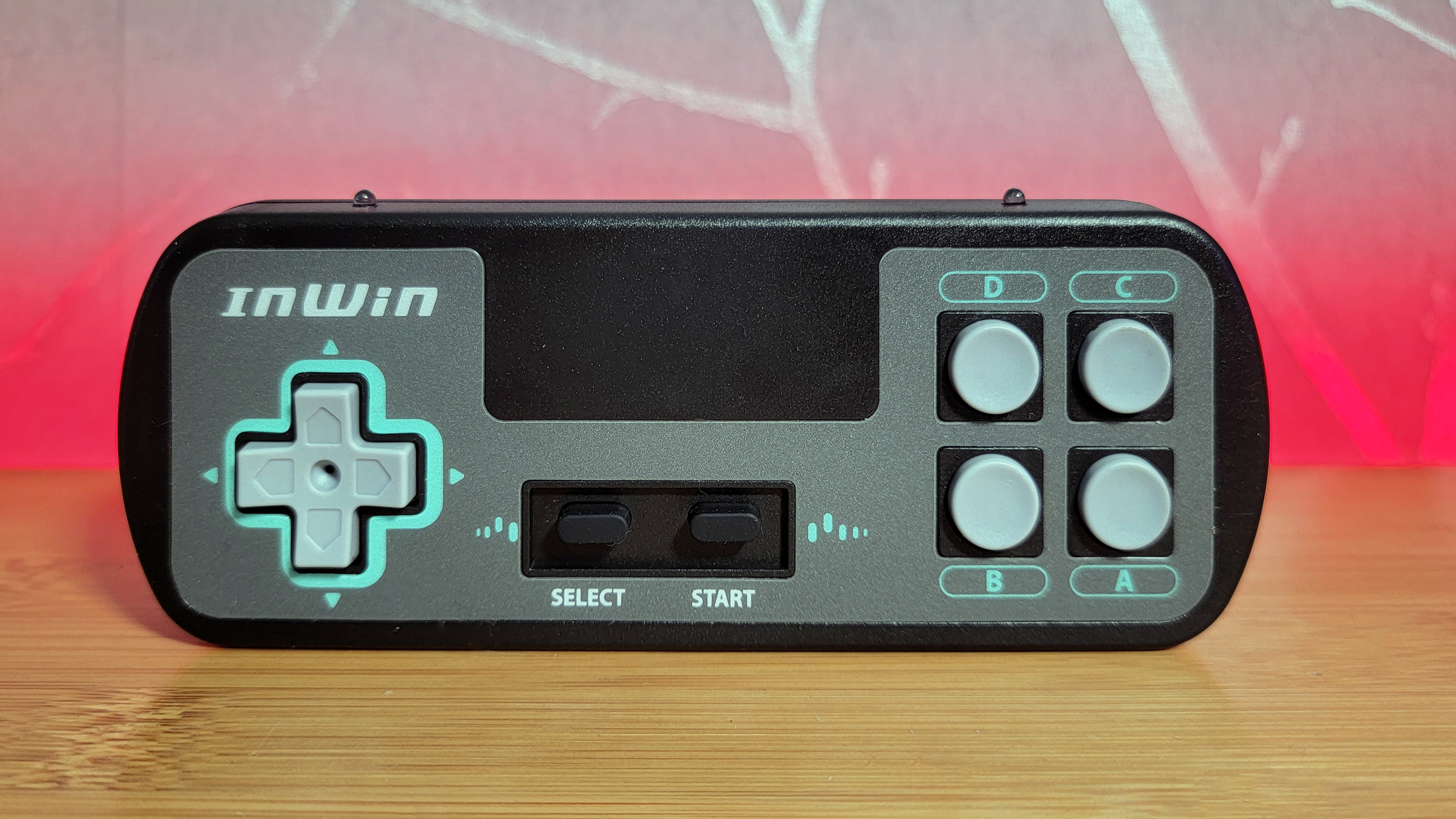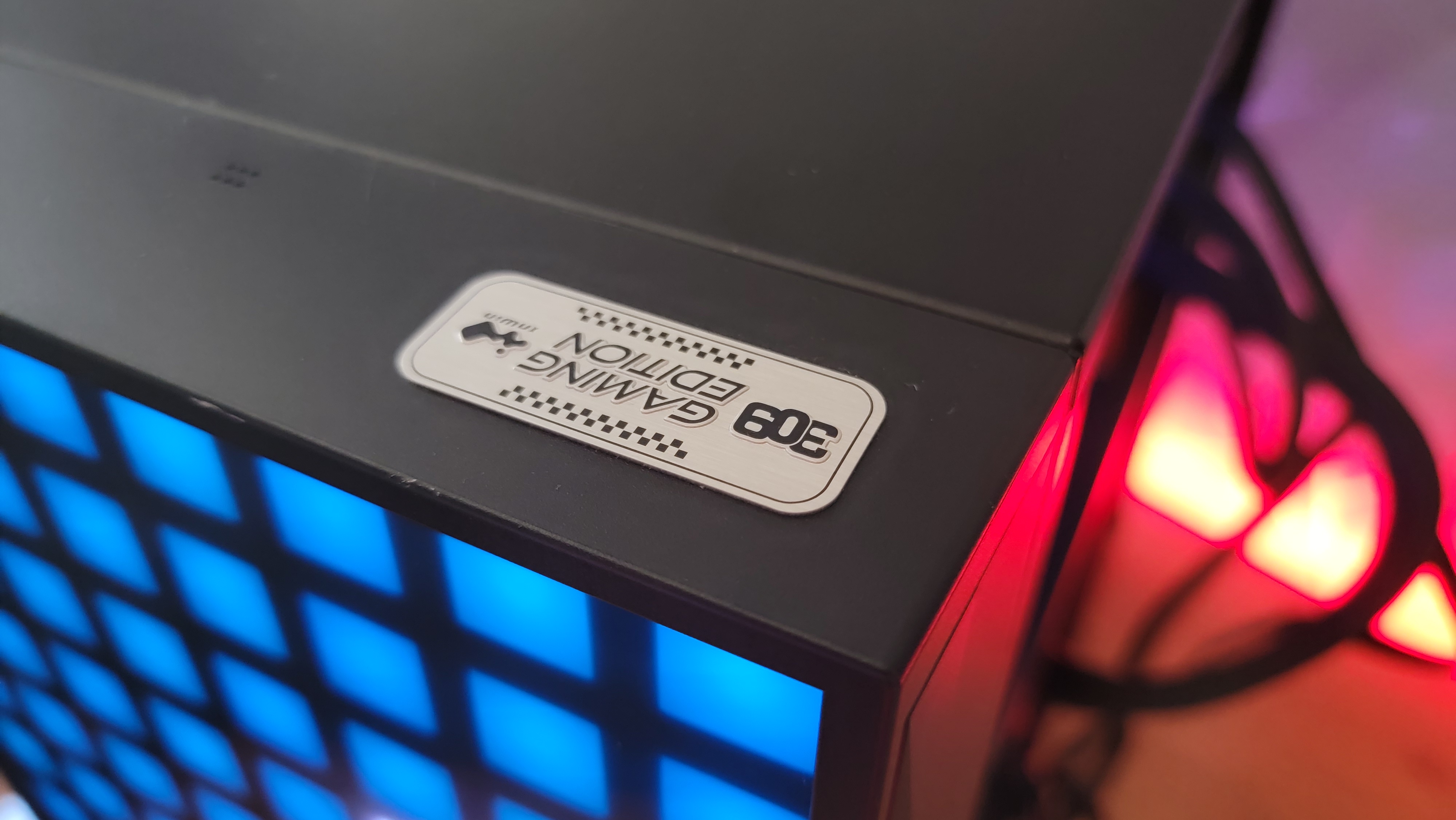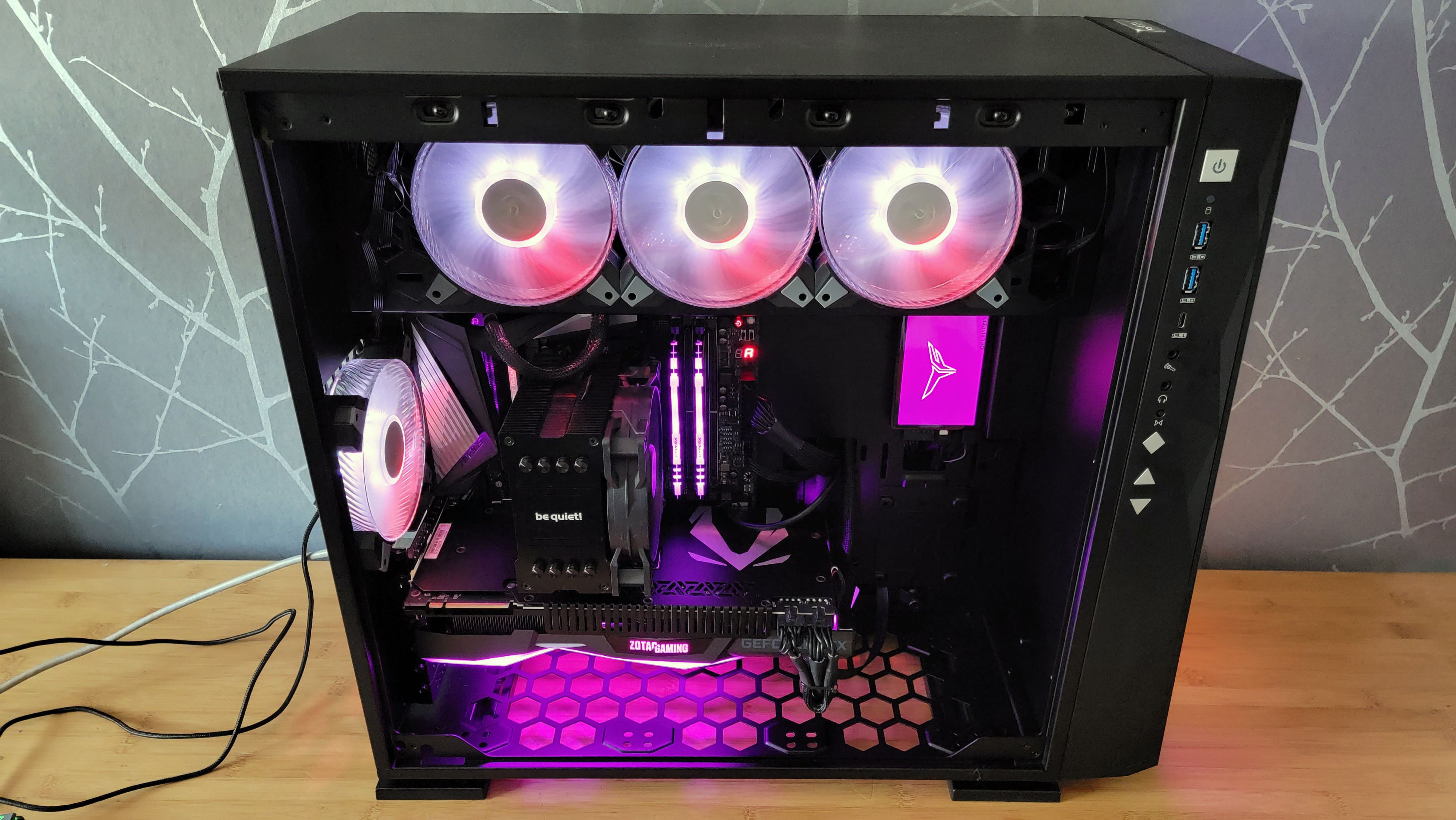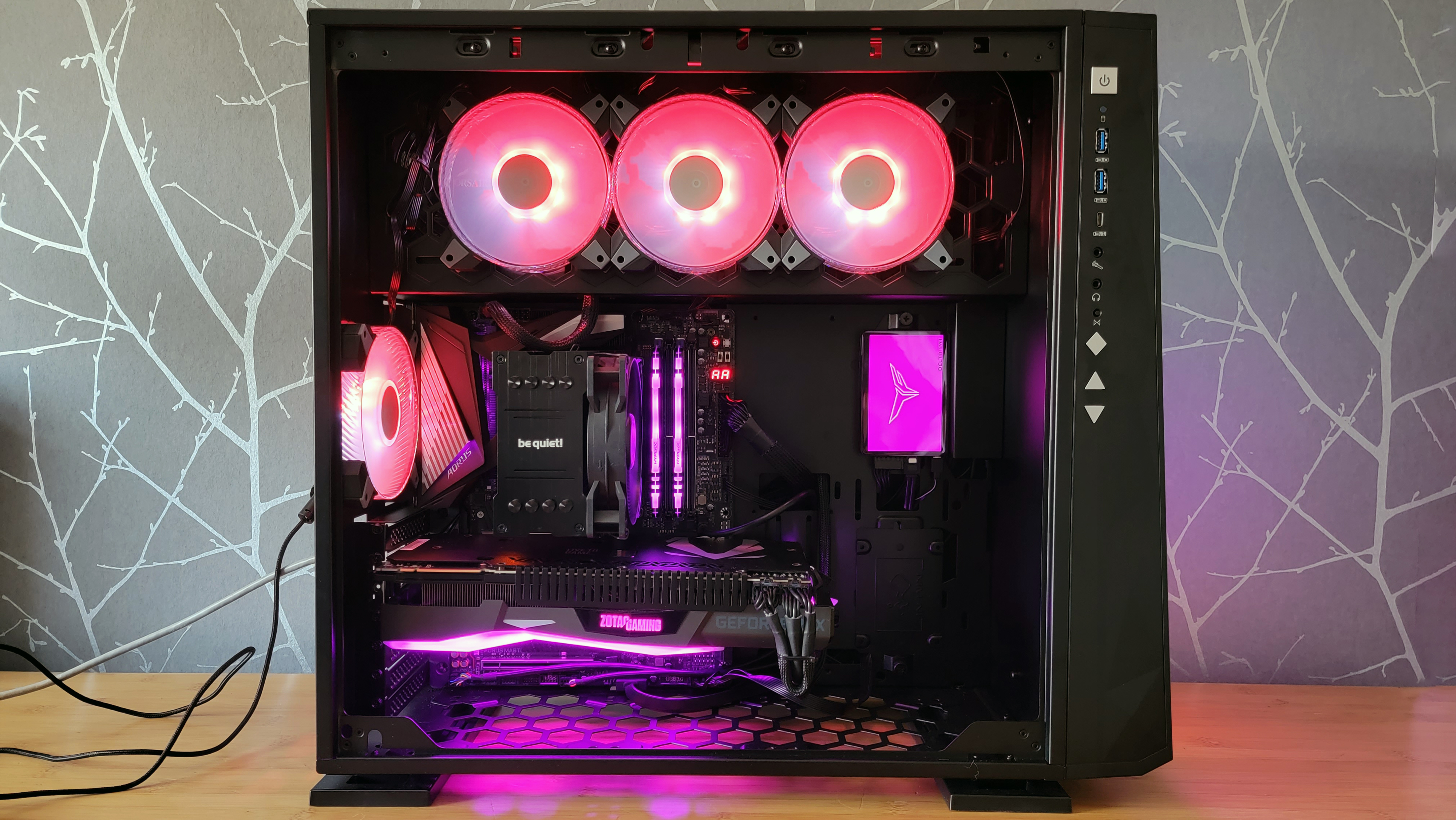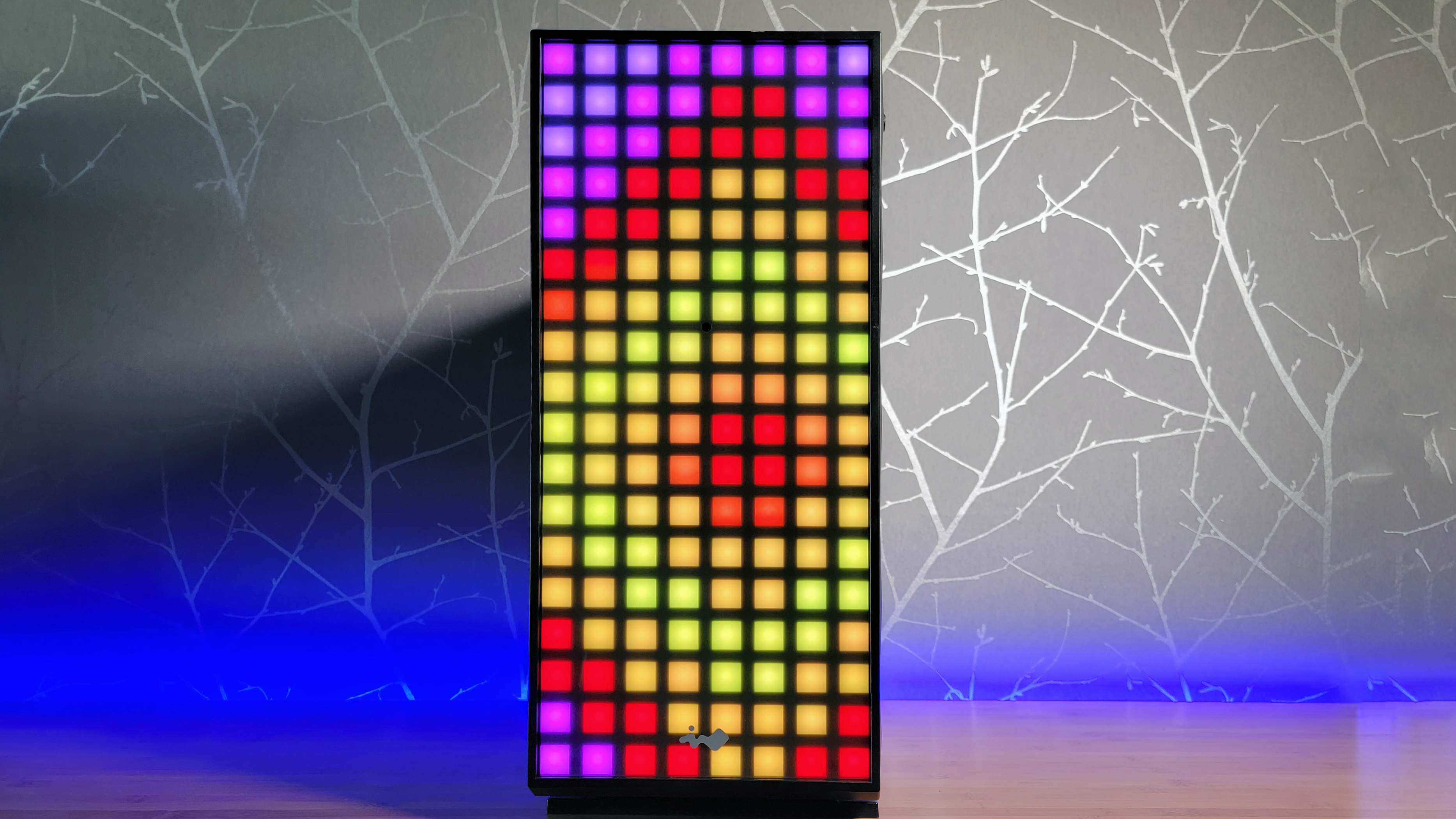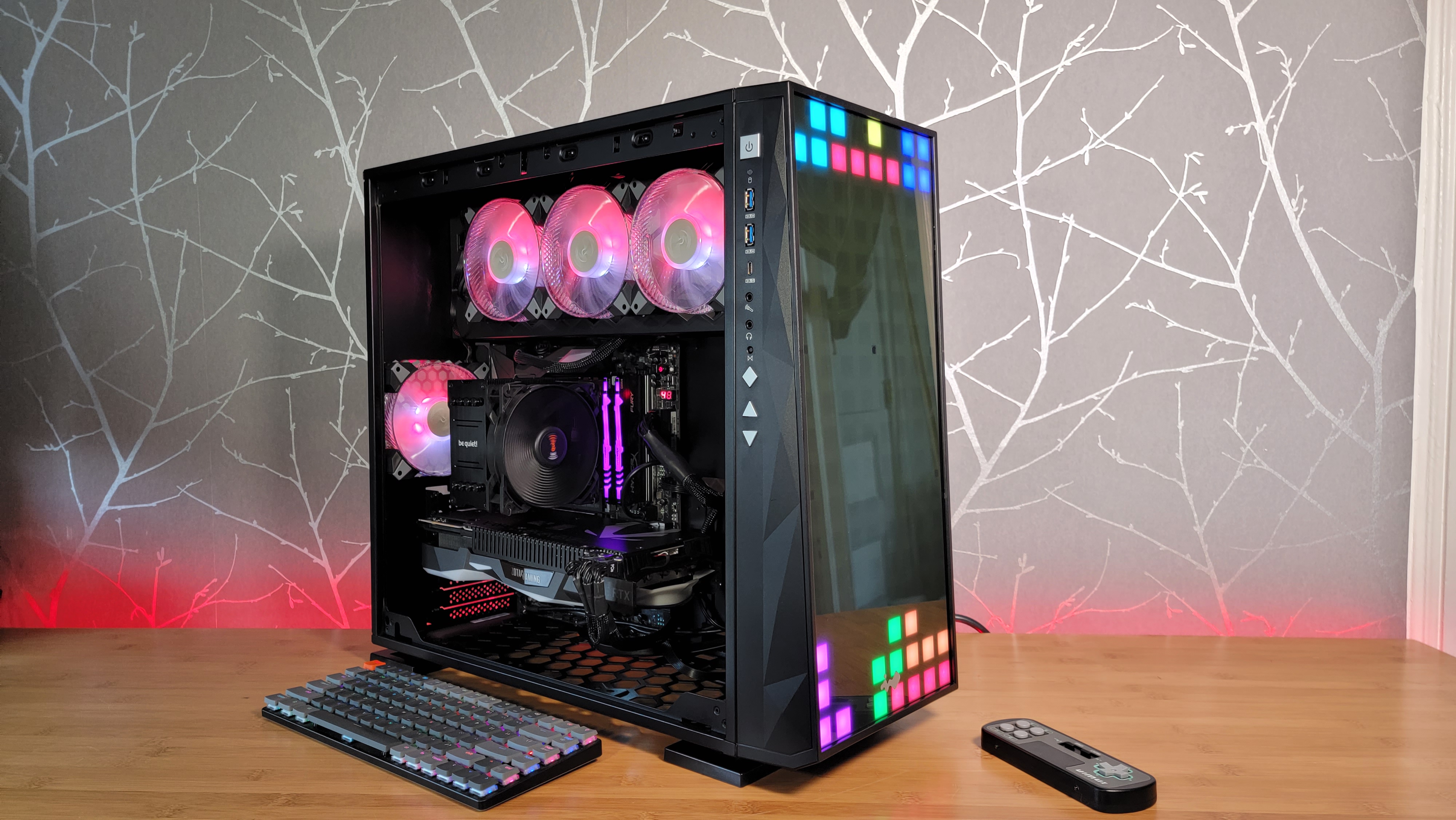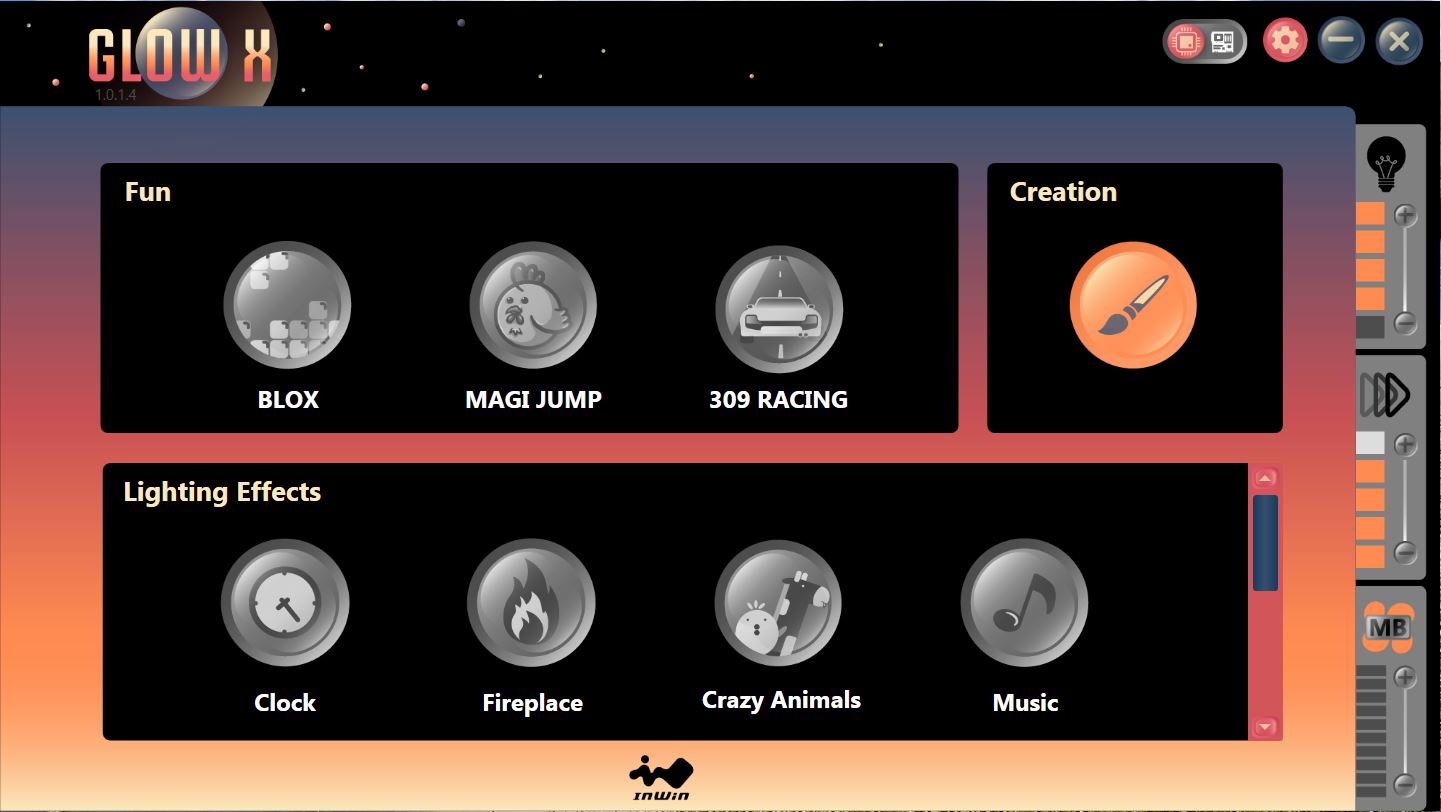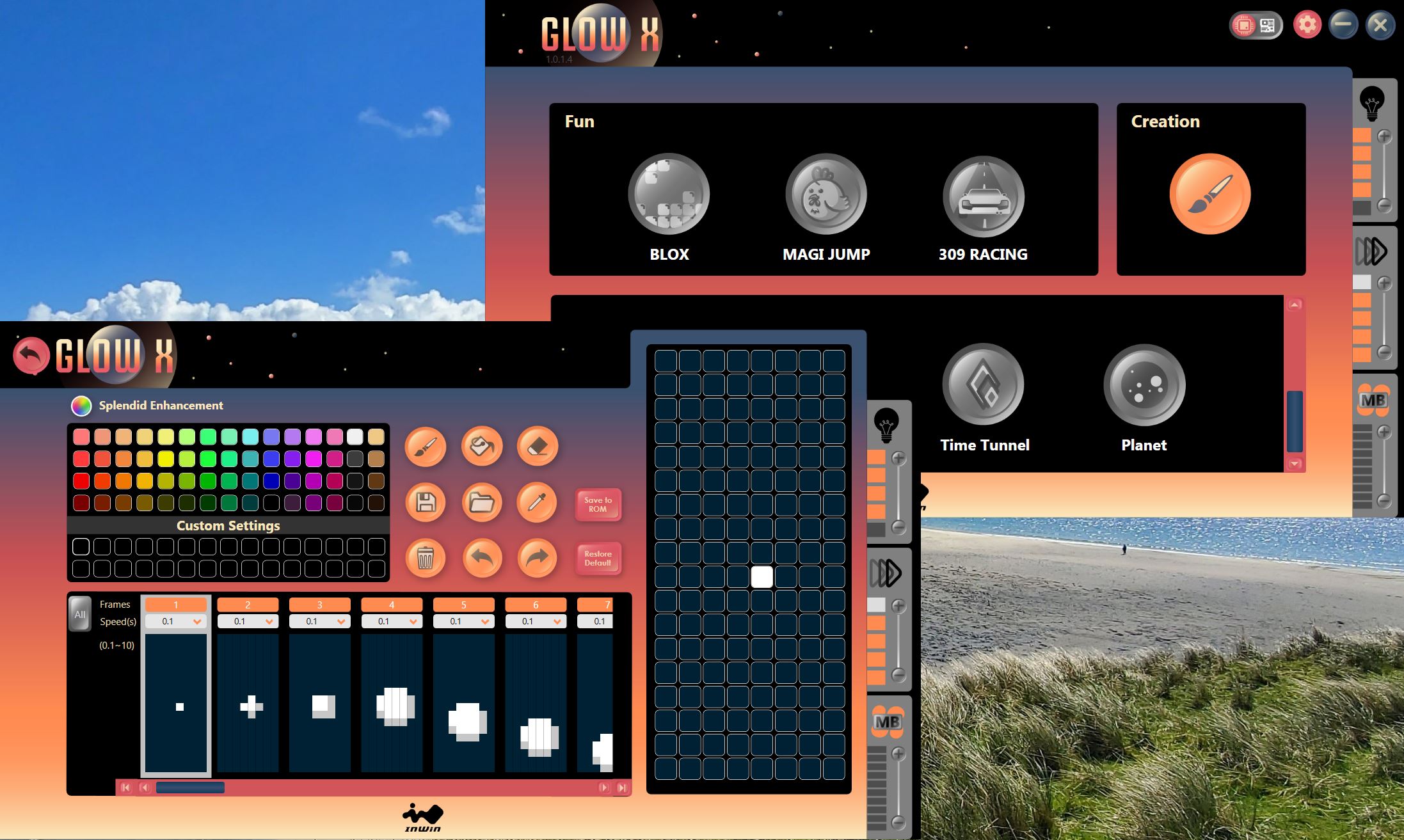In Win's 309 Gaming Edition: Play Tetris on Your Case
A different kind of 'gaming case' has an LED matrix.
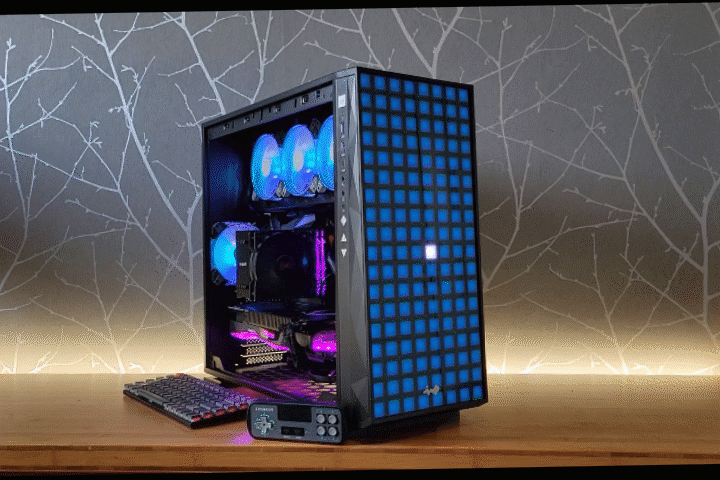
Just because getting one of the best graphics cards at a reasonable price has been nigh-impossible for more than a year now that doesn't mean you don't have other options to game on your PC. As long as you have integrated graphics to display the company's Glow X software, In Win's updated 309 Gaming Edition lets you play blocky, retro-inspired titles right on the 144-pixel case front.
Although, with such a low-resolution screen, the gaming feature is more of a novelty than something that's going to provide an engaging long-term gaming experience. The case is an update on the original 309 we built the Disco Pixel build in last year.
This updated model includes an SNES-like infrared controller (above) that lets you play a few games and change up the front-panel animations without always having to jump into software. The company has upgraded the cooling with the 309 Gaming Edition as well, at least aesthetically, by including four of the company's clear-ringed Saturn RGB fans. This is a major visual change over the previous 309, which shipped with fans that featured just a slim ring of RGB lighting around the edges. And for the front-panel animations that come from the company (rather than ones you make on your own), the fan's lights sync nicely with what's happening on the front of the case.
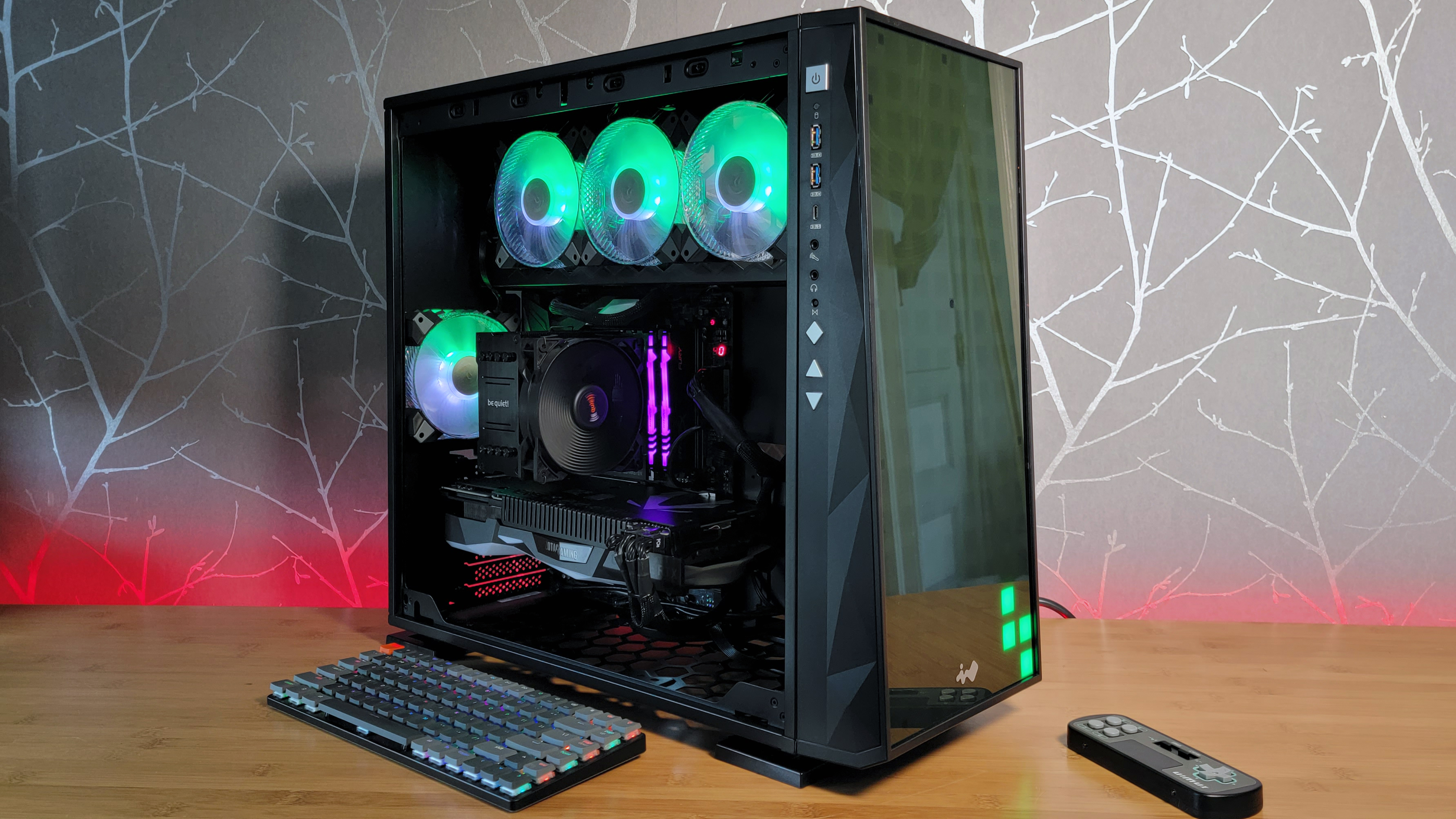
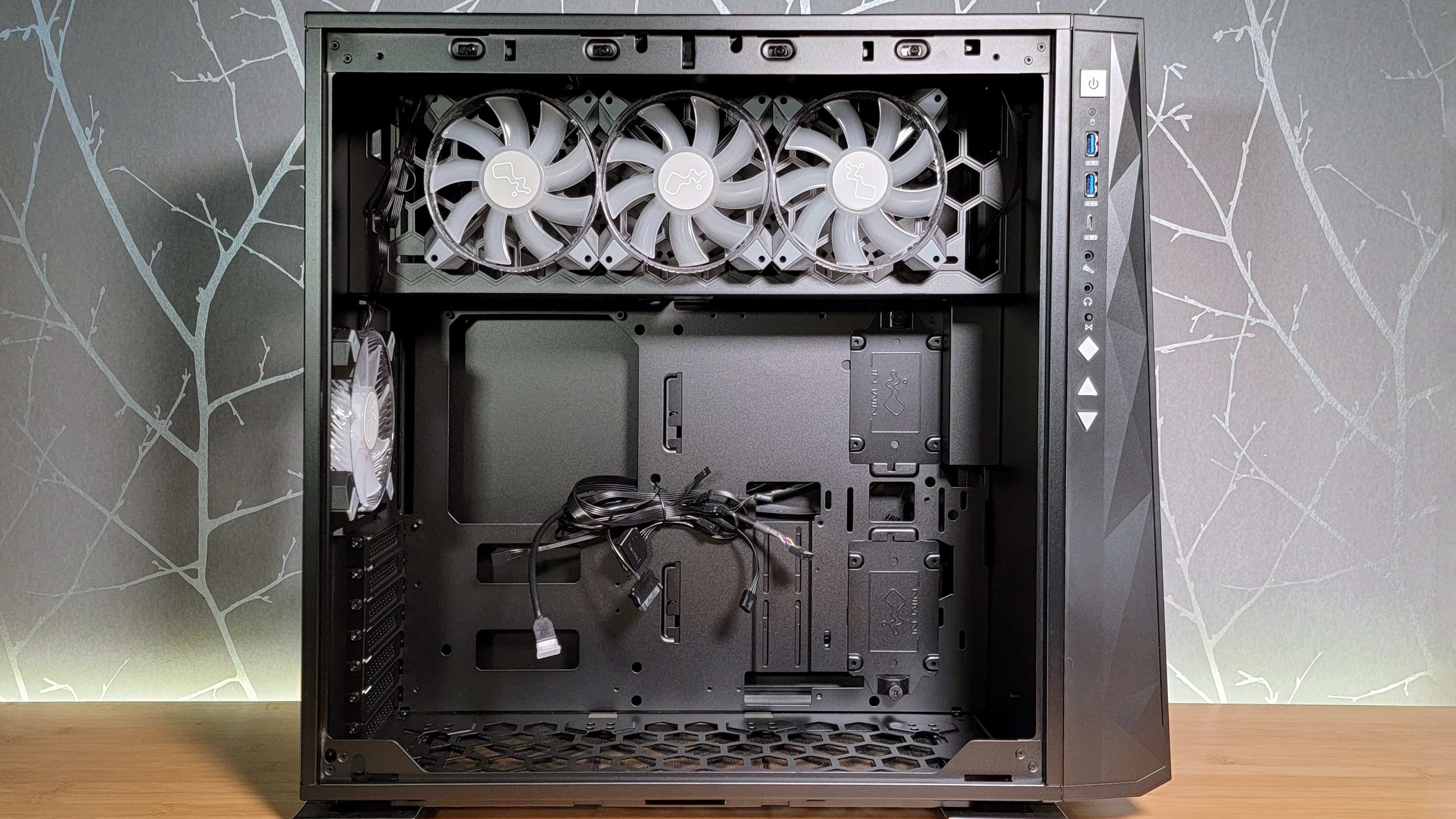
Having a case front that you can play games on is certainly a novel concept, and might keep you busy for a few minutes during those spotty Internet outages. But it's not like an 8 x 18-pixel matrix is going to deliver engaging gaming content. It does, though (thanks to the ability to create your own animations with more frames than the previous model) help make the 309 Gaming Edition a bit more compelling. Just note that, while this is a rather large mid-tower with room for powerful components and an ample four included fans, having a closed-off front, top and one (glass) side means that airflow potential is far from ideal. The In Win 309 Gaming Edition is a fine (and fun) showpiece for your build, but it's the epitome of case aesthetics over airflow.
InWin 309 Gaming Edition Specs
| Type | Mid-Tower ATX |
| Motherboard Support | Mini-ITX, Micro-ATX, ATX, E-ATX (12 x 13 inches) |
| Dimensions (HxWxD) | 21.8 x 9.4 x 19.7 inches (553 x 238 x 500 mm) |
| Max GPU Length | 13.78 inches (350 mm) |
| CPU Cooler Height | 6.3 inches (160 mm) |
| Max PSU Length | 7.87 inches (200 mm) |
| External Bays | ✗ |
| Internal Bays | 2x 3.5-inch/ 2.5-inch, 2x 2.5-inch |
| Expansion Slots | 7x |
| Front I/O | 1x USB 3.1 Gen 2 Type-C, 2x USB 3.0, 3.5 mm Audio, Mic jacks |
| Top Fans | 3x 120 mm |
| Rear Fans | 1x 120mm |
| Front Fans | None |
| Bottom Fans | None |
| RGB | Yes, front panel and four fans |
| Damping | No |
| Warranty | 2 Year Limited |
As mentioned up top, the 309 Gaming Edition is effectively the same chassis as the 309 that we first saw at Computex 2019. The company says it's targeting a price for the 309 Gaming Edition of around $250. That's quite expensive for a case, but of course, you're paying a lot for the pixelated lighting on the front and three visually sophisticated fans. Until recently, there was a version of the original 309 available without fans for $199. If you have fans you'd like to carry over from a previous build and aren't thrilled about the idea of playing games on your case, that might be a better option -- if you can find it in stock.
Rather than dwell on the case's internals, which fans aside are the same as the previous model, we'll look at the changes that come with this case update. Aside from a metal 309 Gaming Edition badge on the top front of the case (which oddly is upside down if you have the case in front of you), the changes are basically an update to the pixel-covered front (making room for an IR sensor for the remote), the shift to the previously mentioned colorful Saturn RGB fans, and updates to the company's Glow X software for controlling and editing what displays on the front panel. First, let's investigate cooling.
Cooling the In Win 309
There's no denying that, with a front and top that's completely closed off from any air intake, cooling isn't going to exactly be ideal. But the bottom of the case is made up of a metal honeycomb design with large holes for cool air to enter. And the case is raised up about an inch off the ground by plastic feet.
Get Tom's Hardware's best news and in-depth reviews, straight to your inbox.
The 309 Gaming Edition ships with four of the company's Saturn 120 mm addressable RGB fans, which come pre-installed in exhaust positions, one in the rear and three up top, facing the rear area where the PSU and cables live. This arguably looks the best, but probably isn't ideal for cooling, as one of the three fans will sit right in front of the power supply. There is at least venting on the right steel side of the case near the top, to let warm air vent out from the PSU chamber.
If you're worried about thermals, it would probably be a good idea to either move one of the top fans to the bottom for intake, or install extras down there at the bottom to facilitate cool air entering the case. There's room for three more 120 mm fans at the bottom, and you can mount a slim 360mm radiator there, though it would be smarter to put it up top where the Saturn fans come pre-installed. But again, a third of the radiator venting will be blocked by the power supply.
So, if you place primary importance on cooling (see best CPU coolers), this isn't the chassis for you. The 309 Gaming Edition is a showpiece chassis first and foremost. Its large glass side panel does a good job of showing off your parts, and the Saturn fans will give your clean build a nice glow. But that front-panel RGB 144-pixel grid is undoubtedly the case's main selling point.
Front Panel Pixels on the In Win 309
In Win calls the Gaming Edition's 144-RGB pixel front panel "enhanced," compared to the previous model. But the only real change I see is a small cutout circle in the center, about two-thirds of the way up the case, for the IR sensor for the case's remote/game controller. Unless you go looking for it, it's hardly noticeable, and the bright vivid pixels are just as eye-catching as ever.
That said, while the panel is more versatile than before, letting you play a few games and create more complex animations (we'll cover the latter shortly in the software section), the 'gaming' experience on the front panel is far from stellar. First, while the controller feels OK, you have to be directly in front of the case's front IR sensor for it to work reliably. Even when standing in front of it and playing for a few minutes, I had missed inputs as my arms moved around or my wrists turned, taking the controller out of the sensor's 'eyeline.'
Second, as you might expect, the level of gaming that's possible on an 8 x18 grid isn't very complex. Blox, the Tetris clone that's included, plays pretty well, when you keep the controller pointed at the front panel. But of course, there are no sounds, or room for any on-screen UI, so the experience is pretty sparse. The thrill of scoring a four-line 'Tetris' on the front of your PC case is still fun in short bursts, though.
Two other games are included: Magi Jump is a platformer that supposedly stars a chicken and 309 Racing is supposed to be a car game. But in reality, both these titles amount to moving simple rectangles around to avoid or land atop other rectangles.
Honestly, I might play Blox now and then when I have 5-10 minutes to kill. But the vast majority of the time I'd probably use the front panel to display the time or rotate through a few eye-catching animated patterns. The remote does let you switch between patterns and adjust the brightness (all the way down to off), which is also helpful. But three buttons on the front of the case accomplish the same thing, without the need for a pair of AAA batteries that you have to feed the controllers.
Glow X Software on the In Win 309
You can cycle through pre-loaded animations and patterns on the 309's front panel using either the on-case buttons or the controller, but if you want to create your own animations or download and install others, you'll need to install and run In Win's Glow X software. It's an updated and reskinned version of the Glow 2 software that we used with the previous In Win 309 case.
Here you can jump into any of the three games or select from one of the eight animated "Lighting Effects." Some of these presets have variations within them. Crazy Animals, for instance, lets you choose between displaying a giraffe eating leaves from a tree or a bird landing on the ground and then walking around.
If you're expecting typical edgy gamer animations here, you'll have to design your own. The company does provide a forum where you can upload and share your own creations, but so far what's there is also from In Win and is also animal related. The goose animation from our main image came from the company's forum page.
Speaking of creating your own images or animations for the In Win 309 Gaming Edition's front panel, that's done via that Creation section in the Glow X software.
You can now create animations with up to 40 frames, and the interface is fairly intuitive, like a chunky version of MS Paint. If you're the creative type, there are lots of possibilities here, though the 144-pixel grid is still quite limiting in terms of discernible detail. And be warned that moving animations from your PC to the display's built-in ROM to display them is a very slow process. When we uploaded the goose animation, it took a few minutes. So it takes some patience to swap out the on-case animations.
Conclusion
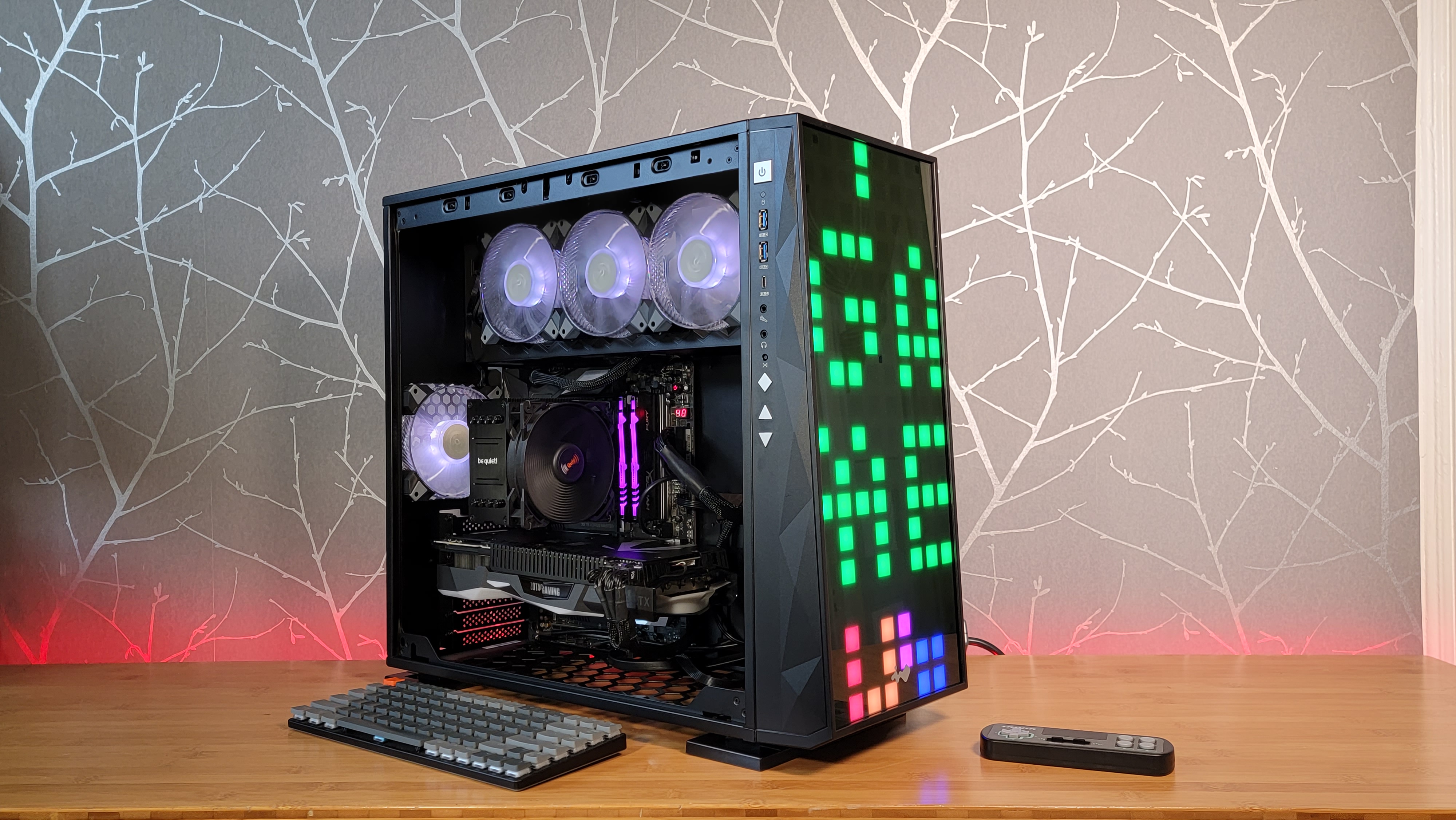
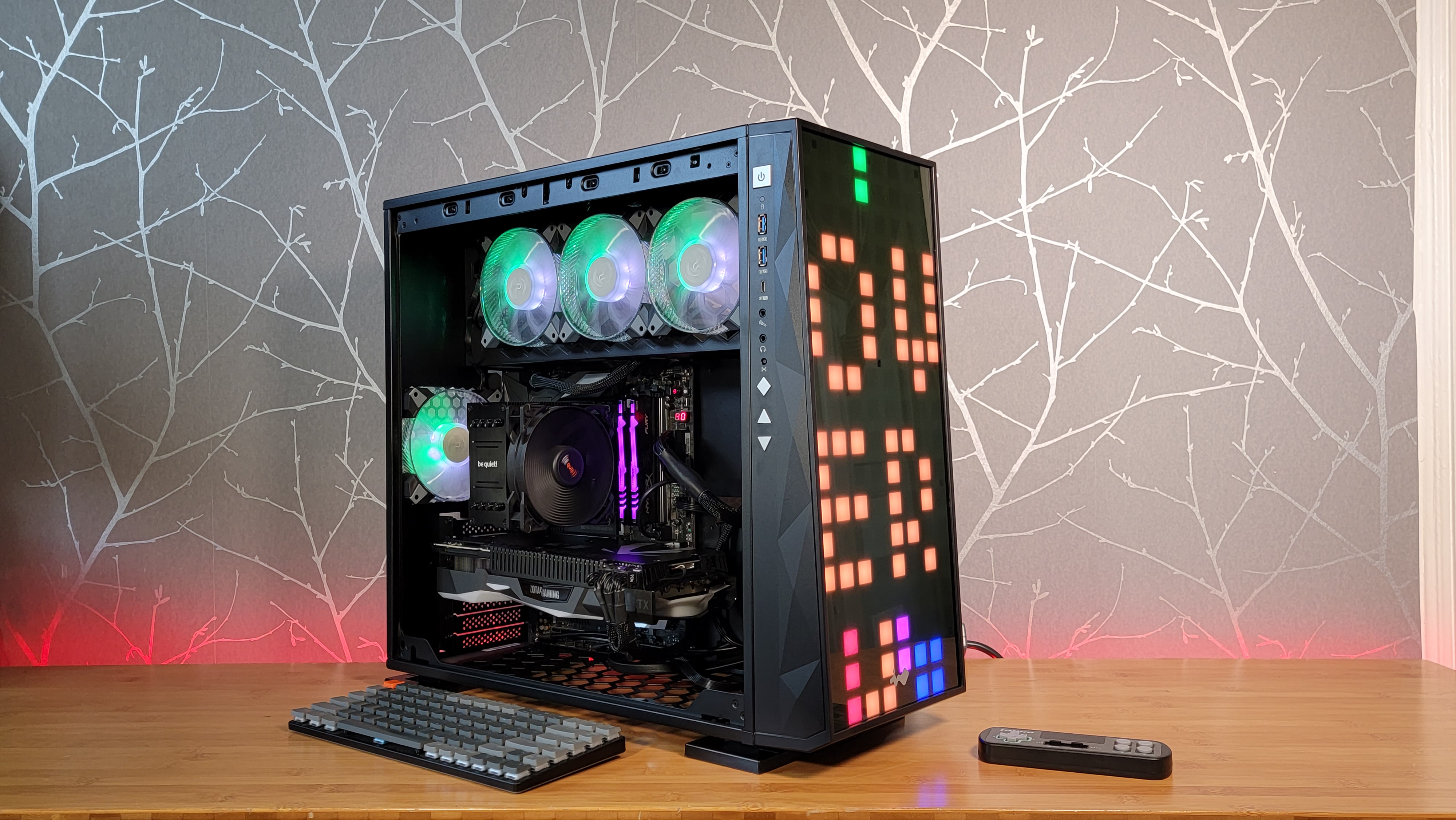
Adding the ability to play games on the front of the In Win 309 case is an interesting idea, and we like the addition of the more colorful Saturn fans the company includes with the In Win 309 Gaming Edition. It also brings new meaning to the term "gaming case," even if the resolution of the pixel display is quite limiting.
I don't think anyone should pick up the 309 Gaming Edition specifically for its gaming abilities. Because those abilities are limited at best, even if Blox is fun for a few minutes. But if you like the look of the In Win 309's pixel-packed front and want a case to show off your build and some simple animation, it's certainly a unique option. Just remember that airflow isn't this case's strong suit. If you want to build a high-powered system packed with components while keeping things cool, check out our best PC cases page for something that's more airflow oriented. And if you really like the idea of a customizable pixel display, there's always the Divoom Pixel Max.
After a rough start with the Mattel Aquarius as a child, Matt built his first PC in the late 1990s and ventured into mild PC modding in the early 2000s. He’s spent the last 15 years covering emerging technology for Smithsonian, Popular Science, and Consumer Reports, while testing components and PCs for Computer Shopper, PCMag and Digital Trends.
-
BX4096 Alternative solution: if you're that desperate for attention, glue a tablet to the front. HD and touchscreen? Now, that's l337!Reply -
Krotow This case is quite convenient to literally give middle finger to everyone around. Otherwise I'll pass.Reply -
USAFRet "There's no denying that, with a front and top that's completely closed off from any air intake, cooling isn't going to exactly be ideal. "Reply
Hard pass. -
bigdragon Is there a chip shortage still going on? This ridiculous case makes me think the chip shortage is over.Reply -
velocityg4 This needs to tie to CPU usage. So, you get more blinking lights and more rapidly blinking lights as usage increases. Sort of like computers in 70's sci fi. It also needs corresponding sound effects of a computer really working hard. That way you know your game is really pushing the computer.Reply
bigdragon said:Is there a chip shortage still going on? This ridiculous case makes me think the chip shortage is over.
It's not like this requires the same tech as modern computer. Some factory on an ancient node could crank out the chips needed for this case. -
Sleepy_Hollowed This case is absolute insanity.Reply
Like, if you want to build it for a kid that will NOT play on the software in it (also more insanity). -
SJRouge91 ReplyUSAFRet said:"There's no denying that, with a front and top that's completely closed off from any air intake, cooling isn't going to exactly be ideal. "
Hard pass.
Yeah, like a gameshow contestant with no car in their showcase. Seriously though, I think all components and your bank account for that matter, would be cowering in fear when they lay eyes upon this case.
